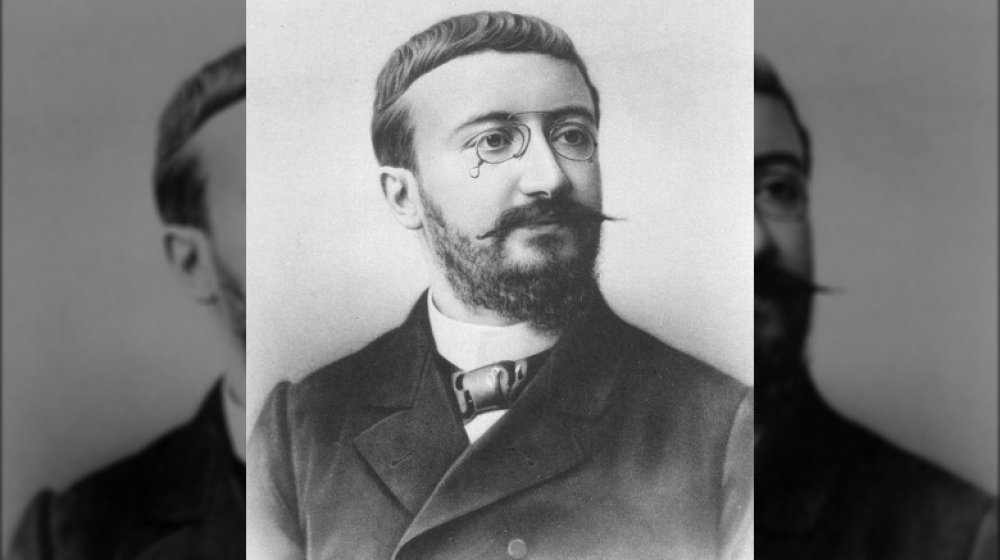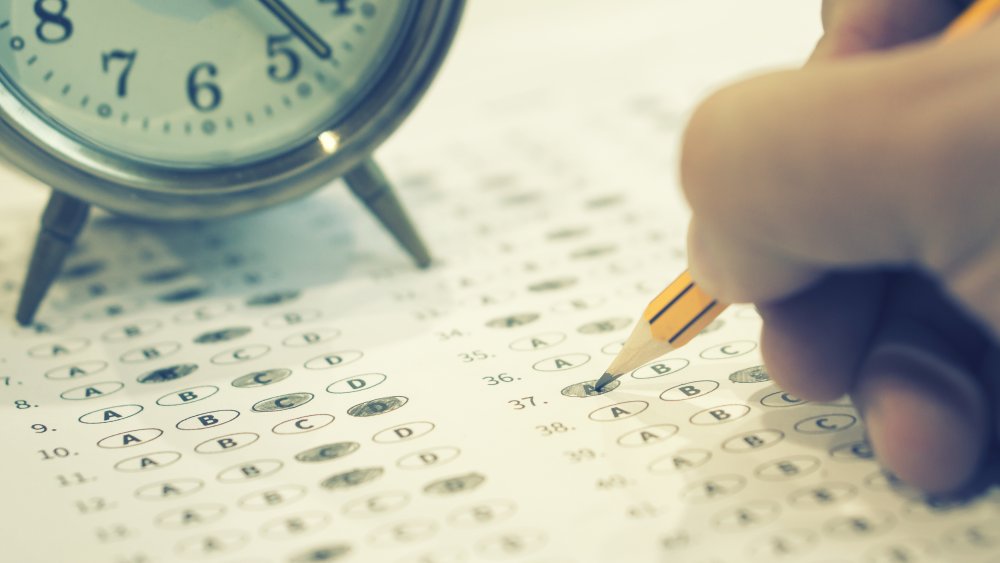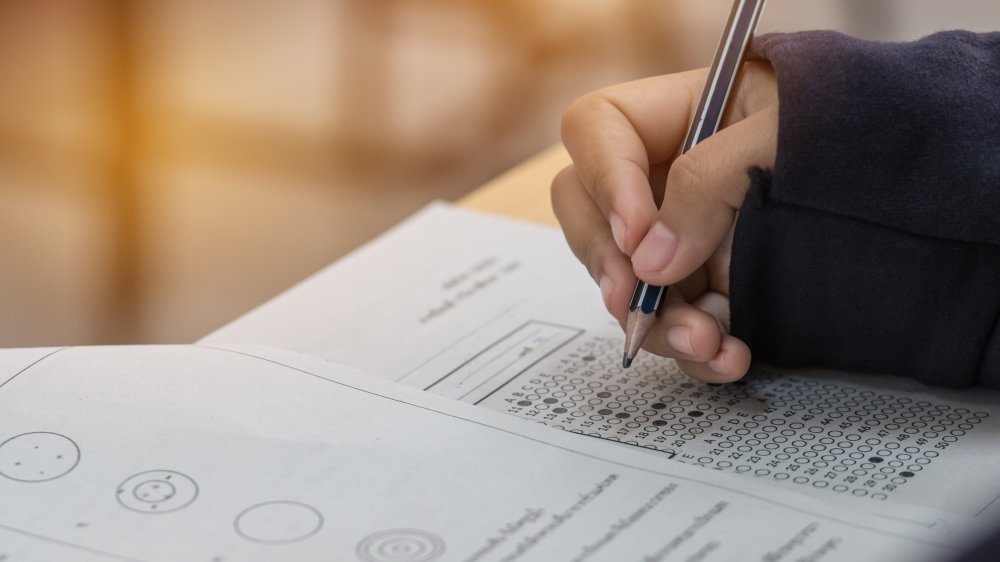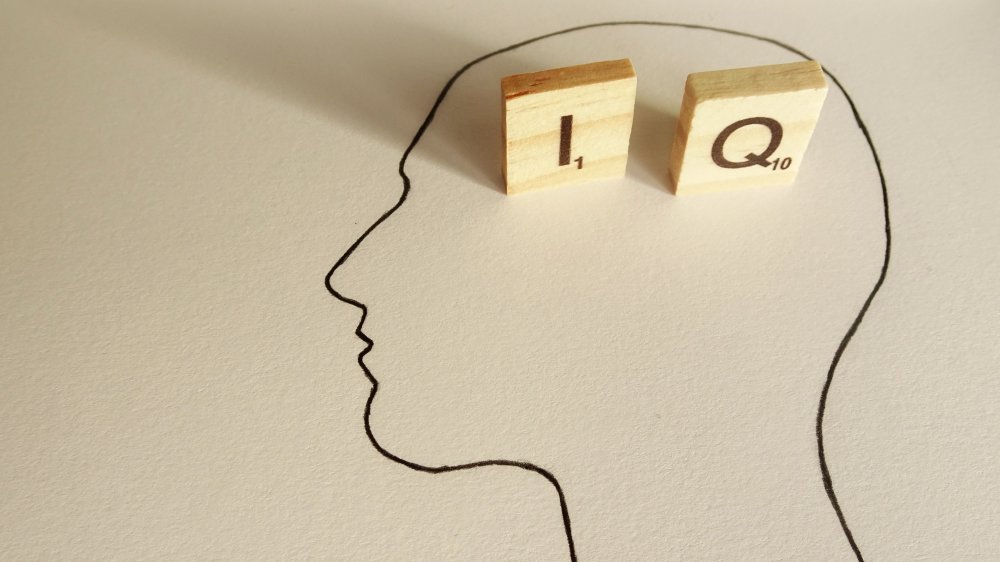The Messed Up Truth Behind IQ Tests
How smart are you? No, really. What's your IQ?
Frankly, the sheer concept of a standardized test designed to measure a person's so-called "intelligence quotient" sounds like the stuff that dystopian nightmares are made of. Sure, it's a great thing to brag about if you are lucky enough to get classified as a super genius, but for those on the more average end of the scale (I.E., most people), it sounds like a not-so-nice way to relive your most messed up memories from elementary school. "Math minutes," anyone? How about picking kickball teams? Ugh.
However, IQ tests have been around, in one form or another, for over a century. They've had a startling impact on the U.S. education system, helped mold societal perceptions regarding what constitutes "intelligence," and their validity continues to be hotly debated. Considering that active research is still conducted on IQ tests today, they're not going anywhere in the future. Sadly, the many occasions in which IQ tests have been used as a justification for racism, eugenics, xenophobia, and executions is ... deeply troubling, to say the least.
When the creator says you're doing IQ wrong, you're doing IQ wrong
So what is "IQ," anyway? Well, the term itself came about in 1912, according to Mensa International, via the psychologist William Stern. Today, your IQ is defined as the standardized score determining how far above (or below) a test taker ranks compared to their peer group. The average is 100.
The notion of an "intelligence test" predates this term, of course, since humans have always been looking for ways to compare brain sizes (metaphorically, you know. Well, most of the time.) The first modern attempt was put together by Sir Francis Galton in 1884, but the foundation for all contemporary IQ tests was developed by a French psychologist named Alfred Binet, who was inspired not by brainy competitiveness so much as a reasonable request — namely, the French government commissioned him to figure out a way to identify which students struggled more in school, and thus, which ones needed a little extra help. Fair enough, right?
This resulted in the Binet-Simon scale by 1905, which was further developed by Stanford University, and progressively transformed into the IQ test you know today. Here's the thing, though: Binet did not agree with this approach. Not in the slightest. Binet's intent had been on identifying special needs students, and according to Paul L. Houts, the esteemed psychologist was deeply troubled by (and critical of) how others were misusing his work to test people's intelligence, which had never been his goal. Oops.
Do these IQ tests actually work? Well, uh ...
IQ tests have been controversial since their inception. How could they not be? As noted by Daphne Martschenko, Ph.D., the question of whether IQ tests are useful (or not) has often been a point of debate by legions of, well, smart people — you know, scientists, researchers, academics, and so on — many of whom find the concept lacking. The unquestionably gifted Stephen Hawking, for instance, was famously uninterested in knowing his own IQ, once telling the New York Times that, "People who boast about their I.Q. are losers."
Quotable quotes aside, though, many have questioned what, exactly, IQ tests truly measure, and whether the test itself is prejudiced. Intelligence is an almost incomprehensibly complex thing, as the Guardian argues, and the factors that influence a person's IQ results on a given day — from cultural influences, to nature vs. nurture, to crystallized intelligence, to fluid intelligence, to whether a person eats fish once a week — have created many arguments. The whole thing gets even thornier when it comes to the oft-reported biases that "standard" IQ tests have regarding gender, race, and social class, according to the Independent, or the fact that when you test kids, labels such as "gifted" or "disabled" can create a self-fulfilling prophecy which impacts the rest of their academic career, as NPR writes, usually to the detriment of less privileged students.
Bottom line? IQ is a messy subject.
IQ tests fueled the eugenics movement, and led to forced sterilizations
Now, whatever one's opinion on IQ tests, one of the big problems with something like measuring people according to their "intelligence quotient" is that, predictably enough, it gives fuel to some of the worst engines in society, I.E., bigotry, prejudice, ableism, and so on. In the mid-20th century, according to Daphne Martschenko, IQ tests became common fodder for the dangerous philosophies of those who promoted eugenics, who thereupon argued that intelligence was determined by genetic and hereditary factors, such as race. The science didn't back up this bigotry, of course, but eugenicists nonetheless used IQ scores as evidence for their classification of people of non-Anglo descent as "idiots" and/or "feebleminded." These viewpoints directly led to a horrifying 1927 ruling, by the U.S. Supreme Court, which legalized the forced sterilization of those believed to have low IQ scores, including the developmentally disabled, for reasons of eugenics. As a result, 65,000 people were victims of forced sterilization.
The connection between eugenics and IQ history isn't incidental, sadly. Henry Herbert Goddard was the man who took the Binet-Simon test and created an intelligence testing industry out of it — it was Goddard who promoted the use of IQ testing in courts, schools, and immigration procedures — and, according to the American Psychological Association, Goddard also publicly argued for the mandatory sterilization of "feebleminded" individuals, to prevent them from creating generations of "inferior" descendants.
So yes, unfortunately, IQ tests and eugenics have a dark, horribly intertwined past.
IQ testing has a long history of racism
Discussion surrounding IQ test scores has often been a magnet for racist and xenophobic people to come out and start saying racist and xenophobic things. So-called "race science" is bogus garbage, as the Guardian explains, but racists have not stopped skewing IQ research to suit their agenda. In 2014, the book A Troublesome Inheritance tried to claim that human brains had evolved differently according to people's races, using the differing average IQ scores as reputed "evidence." In response, 139 leading experts signed a letter to the New York Times, calling out the book for its "misappropriation of research," and rejecting its racist conclusion.
However, while "race science" is stupidly easy to debunk, the problematic link between IQ testing bias and racism is nothing new. IQ test scores were used to justify apartheid in South Africa, for example. In the U.S., they were used to justify opposition to welfare plans that would help Black children living in poverty. Contrary to racist conspiracy theories, Mother Jones points out how any racial gaps between IQ scores can be accounted for due to environmental factors. Marginalized groups (for example, Irish-Americans in the 1900s) often score lower due to class inequality, systemic oppression, language barriers, and so on: basically, people with money, opportunity, and privilege score higher on IQ tests because of money, opportunity, and privilege. Seriously, do the math, and consider how much easier it is to score high on a test if your parents can hire a tutor.
When the police department screens you out because your IQ is 'too high'
The prejudices caused by IQ test score disparities can take many different forms. Most often, this results in the disenfranchisement (or worse) of people who test lower than others. Sometimes, though, testing too "high" can cause you to lose a job as well, bizarre as that sounds. Such was the fate of Robert Jordan, a Connecticut man who tried to join the New London police department in 1996, according to ABC News. Part of the application process involved taking a standardized IQ test. Jordan scored a decent amount above average, at 125. Unfortunately for him, 125 was above their maximum allowed score, and thus, Jordan wasn't hired. Yes, really.
Evidently, it was the policy of the New London police department to only accept applicants with test scores in the average range, around 100. The police argued that applicants who scored too high would get bored with police work, and leave after the department had already invested in their training. Jordan called foul, and he took his case to court on charges of discrimination. The police won. By the year 2000, Jordan took the case to the 2nd U.S. Circuit of Appeals, and shockingly enough, they upheld the lower court's decision. Despite these losses, Jordan continued to argue that he had been discriminated against, telling the press, "This kind of puts an official face on discrimination in America against people of a certain class."
IQ tests have been used to justify executions
For a long time, experts have been discussing the racial biases at work in IQ tests. Horrifyingly enough, in 2018, David M. Perry reported for Pacific Standard that the testimony of these experts was being used to justify more prisoners being sentenced with the death penalty.
How could this whole thing get so twisted? Well, the prejudices of the U.S. prison system are well-documented, and this whole situation is basically a loophole to get around U.S. laws regarding punishment of those with an intellectual disability. Basically, for the past few decades, most U.S. courts have ruled that people with an IQ score below 70, generally, cannot be put to death. However, as awareness regarding racial biases in IQ testing has become more widespread, prosecutors in many states have used so-called "ethnic adjustments" — which adjust the IQ scores of non-white prisoners upward — to thus make it so these prisoners do "qualify" for the death penalty. Lucky them.
Now, whether or not there's any moral justification for the death penalty, whatsoever, is a whole other subject, to say nothing of Perry's previous report, also on Pacific Standard, concerning the startling number of Death Row prisoners who have disabilities. However, one thing that everyone should agree on is the disturbing implications of the racist elements in IQ tests being flipped around, and used to further marginalize people in a criminal justice system already known for its race issues.
Standardized testing is kind of a big problem unto itself
What, you hate standardized testing? You should. And, just so you know, those tests that ruined your junior year of high school were all inspired by IQ tests.
As explained by the National Education Association, the standardized tests that have overwhelmingly exploded across the U.S. education system are a direct descendant of the IQ tests of the early 1900s, meaning that the history of your not-so-beloved SAT is mired in the same racist-tinged, eugenics-associated issues as IQ tests. Similarly, just as IQ tests exacerbate class and racial divides, the same is true of standardized testing, the bias of which often serves to exacerbate imbalances of the education system, and harm these children's futures.
As if that wasn't bad enough, the Washington Post points out that the obsessive emphasis on high-stakes testing in the United States creates a smorgasbord of problems: these tests stifle creativity, stifle critical thinking, promote cheating, don't accurately measure a student's learning progress, and — when combined with other factors, such as low pay — has led to an increasing number of once-passionate teachers walking away from the profession.
If IQ does measure something, it can't be applied on an individual basis
Wait, so if IQ history intertwined with so many horrendous things, why is IQ still studied today?
First off, it's worth nothing that IQ studies today are entirely different from IQ studies of the past century. Second, the way that ordinary people view IQ (I.E., super geniuses test high, dumb people test low) is oversimplified, reductive, and inaccurate, because you can't reasonably ignore how environmental and socioeconomic factors impact a person's test results. A 2016 study published in the Industrial Psychiatry Journal found that the factors which most impacted a child's IQ score were their home, level of physical activity, family income, and the education of their parents. So again, more privileged children, with more resources, tend to get higher IQ scores. This phenomenon is arguably something worth considering, not as a way to evaluate the individual children, but rather, as a way to study broad trends. It's also useful to examine IQ scores less as a measure of "smarts," and more as a predictive tool, as Vox describes, since there is a surprising amount of data regarding IQ scores as a predictor of health, longevity, and prosperity.
In fact, when you look too closely at individual IQ scores, it often provides false outcomes. For example, Vox also points out that chess maestro Garry Kasparov had an IQ of 135, which is high, but not high enough that anyone could have anticipated his chess prowess.
Are there any benefits to IQ testing?
Okay, so IQ tests have a problematic past. They're biased toward people of white, male, Western origin. And they've been used as justification for some truly awful things. On the other hand, Daphne Martschenko believes IQ testing can — and has, at times — been used for good. How so? Well, fittingly enough, by using them in exactly the way that Alfred Binet first intended: to identify children who could benefit from special education.
If applied correctly, patiently, and not competitively, IQ tests could locate children who need a little extra help, and also highlight potentially high performers who are just blocked by socioeconomic challenges, family income, oppression, and so on. The point wouldn't be to emphasize some students as bright while making others feel worse, but rather, to identify the structural inequalities that cause some to succeed more easily, while also providing new opportunities for others to receive the helping hand they need. In fact, universally screening all students through IQ testing, at a young age, has been found to increase the representation of low-income and minority students in gifted education programs, according to Proceedings of the National Academy of Sciences of the United States of America. So, nothing is ever simple, and certainly not IQ tests. That's why it's important to look at all sides of the picture, to learn from the mistakes of the past, and determine what may be the best path forward.
If you HAVE to take an IQ test, don't do a silly social media version
You know those goofy "get your IQ in just five minutes!" tests that pop on your Facebook newsfeed from time to time? Well, don't bother with them. Please. Yeah, the high score you receive will make you feel great about yourself, for like ... 10 seconds. Until you remember that such phony quizzes are dumb, that you know they're dumb, and that everybody else probably gets the same "genius" score you did so the test will be shared more and the creators get more money. Frankly, instead of doing a quickie online IQ test, you'd probably be better served (and more entertained) by taking a quiz about what character in the Marvel Cinematic Universe is your one true love.
Seriously, though, you have to understand that any free test you take online, particularly if it takes five minutes, is probably not a legitimate IQ test. As the New Scientist points out, true IQ tests are administered by professionals, and will take you over an hour to complete, because they assess everything from your mental processing speed, to your spatial ability, to your vocabulary. These tests aren't fun, aren't quick, and probably won't tell you that you're the next Albert Einstein. So, if IQ is something that fascinates you, do it the right way. Just know that, even if you do, the factors influencing your score might have more to do with your privilege and lifestyle than your natural smarts.










